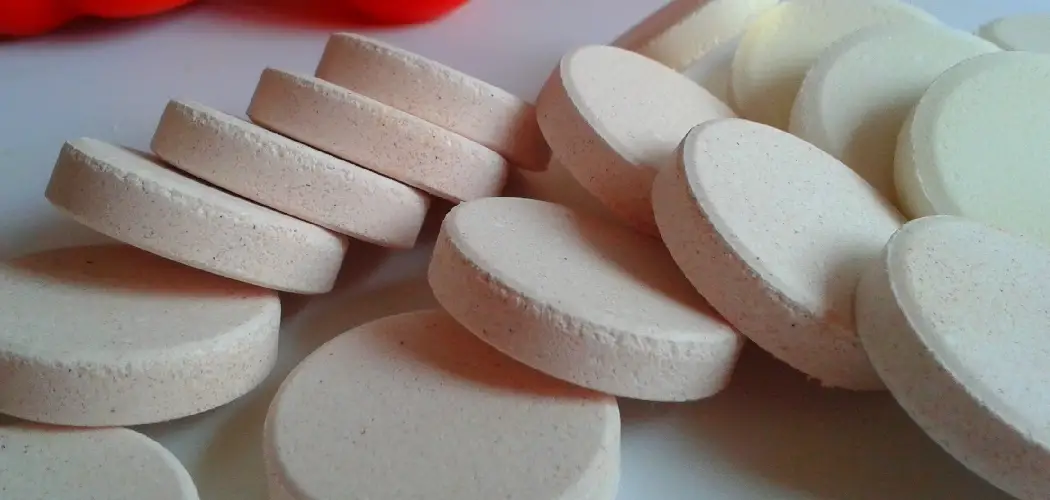Have you ever wanted to make sure that your pool stays clean without having to worry about all the extra costs associated with chlorine? Well, if so, you have come to the right place! In this blog post, we are going to discuss some simple steps you can take in order to get more free chlorine into your swimming pool without buying expensive chemicals.
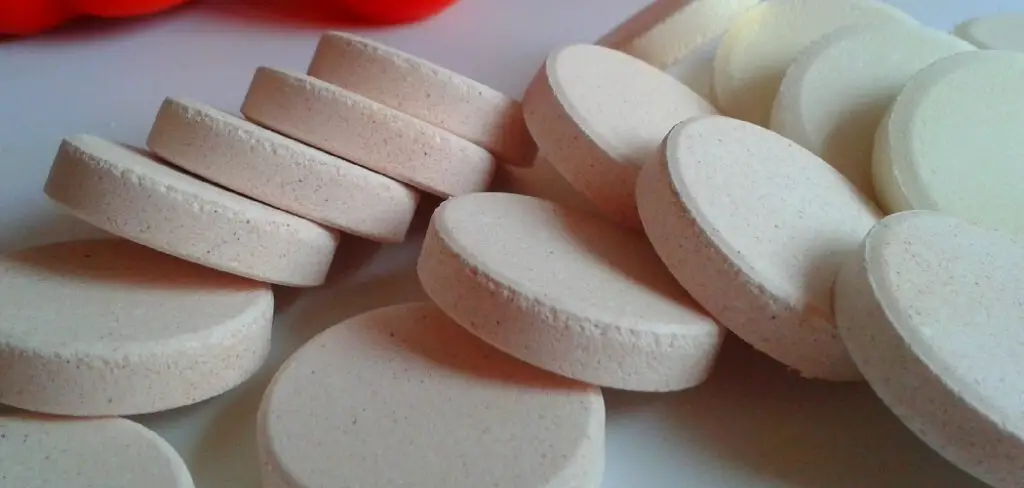
By following our tips and tricks on how to get more free chlorine in pool– such as setting up a cover for your pool or using natural products like baking soda – you’ll be able to keep your pool sparklingly fresh while saving money too! So what are you waiting for? Read on and learn how easy it is maximize free chlorine levels in your own backyard oasis!
Why May You Want to Get More Free Chlorine in Pool?
1 . To Keep Your Pool Sanitized
When you add chlorine to your pool, it creates what’s known as free chlorine. This is the form of chlorine that kills dangerous bacteria and algae in your pool water. Having adequate levels of free chlorine is crucial, especially during periods of heavy use, such as summer or after a pool party.
If you notice that your pool water looks cloudy or has a strong chlorine smell, your free chlorine levels are likely low. In this case, you’ll want to take steps to increase the amount of free chlorine in your pool.
2 . To Prevent Illness
Having adequate levels of free chlorine in your pool not only keeps the water clear and clean, but it also helps prevent illnesses. Without enough free chlorine, harmful bacteria and viruses can thrive in your pool.
This puts swimmers at risk of developing infections, such as swimmer’s ear or gastrointestinal illnesses. By regularly checking and maintaining free chlorine levels, you can prevent these illnesses and keep your pool a safe place to swim.
3 . To Save Money on Pool Chemicals
Adding more free chlorine to your pool may also help you save money on pool chemicals in the long run. When free chlorine levels are low, it’s common for pool owners to add more chlorine tablets or shock treatments to compensate.
However, this only adds unnecessary chemicals to your water, which can be costly over time. By regularly maintaining proper free chlorine levels, you can reduce the need for excessive chemical treatments and save money.
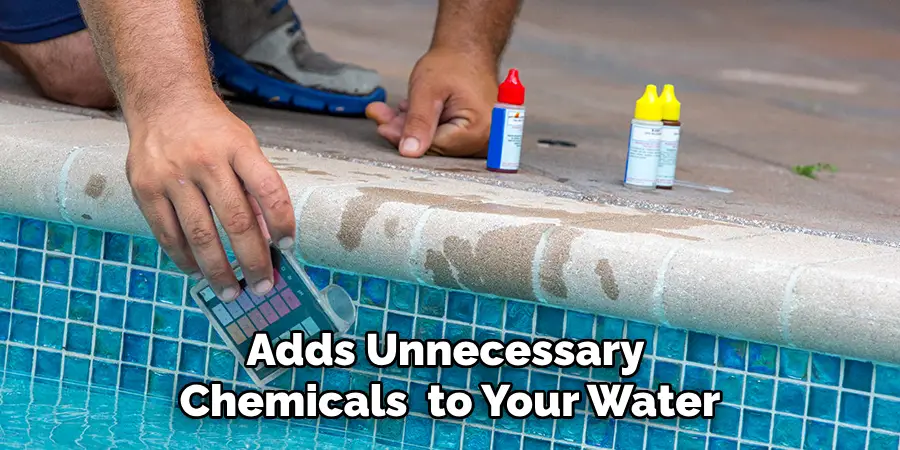
4 . To Protect Your Pool Equipment
Low levels of free chlorine can also damage your pool equipment, such as filters and pumps. When there isn’t enough free chlorine in the water, algae and bacteria can build up and clog your pool’s systems. This can result in costly repairs or replacements. By maintaining proper levels of free chlorine, you not only protect the health of your pool but also prolong the life of your equipment.
11 Tips on How to Get More Free Chlorine in Pool
1 . Clean Your Pool Regularly
Regular cleaning of your pool is one of the most important things you can do to maintain proper chlorine levels. A dirty pool will use up more chlorine, requiring you to add more in order to maintain a safe and clean swimming environment.
2 . Use Chlorine Shock
Chlorine shock is a powerful way to quickly raise the free chlorine level in your pool. It is best to use shock treatment at night when the pool is not in use, and then allow it to circulate for several hours before swimming.
3 . Monitor pH Levels
Proper pH levels are crucial for chlorine to work effectively. If the pH is too high or too low, it can affect how well the chlorine works. Keep your pH levels between 7.2 and 7.6 for optimal chlorine function.
4 . Use Stabilizer
Adding a stabilizer, such as cyanuric acid, to your pool water can help protect the chlorine from being destroyed by the sun’s UV rays. This will allow the chlorine to work longer and prevent it from being used up too quickly.
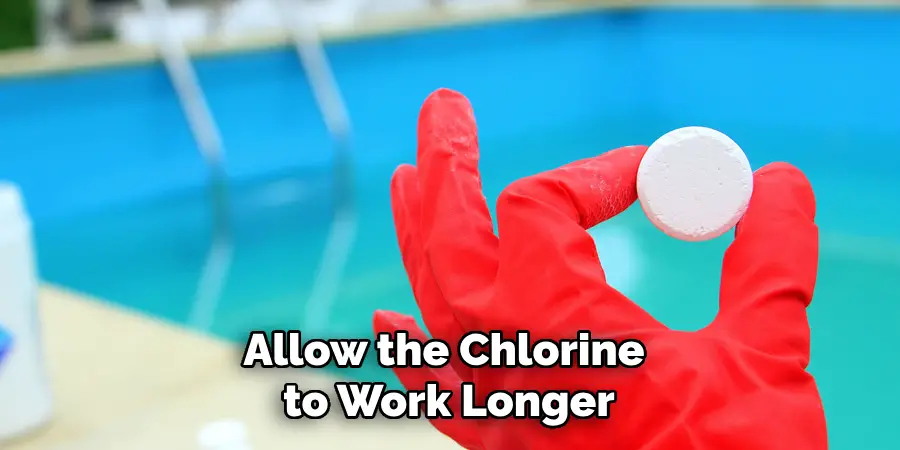
5 . Use a Chlorine Floater
A chlorine floater is an easy way to continually add chlorine to your pool. It will slowly release the chlorine tablets into the water, providing a steady supply of free chlorine for your pool. Also, make sure to regularly check the floater and refill it as necessary.
6 . Check Chlorine Levels Frequently
Regularly checking your pool’s chlorine levels is important in maintaining a safe swimming environment. Test your water at least two to three times a week during peak swimming season, and adjust your chlorine levels accordingly.
7 . Use Liquid Chlorine
Liquid chlorine is a quick and effective way to raise your pool’s free chlorine levels. It is also less likely to cause pH imbalances compared to other types of chlorine, making it a great option for maintaining proper levels in your pool.
8 . Brush Your Pool Walls and Floor
Brushing the walls and floor of your pool helps remove algae and bacteria that can consume chlorine. This will help your chlorine work more efficiently and last longer.
9 . Keep Your Pool Covered
Covering your pool when it is not in use can help prevent contaminants from entering the water, reducing the amount of chlorine needed to maintain proper levels. It also helps protect the chlorine from being broken down by the sun’s UV rays.
10 . Use a Pool Vacuum
Using a pool vacuum to clean your pool will help remove debris that can consume chlorine and make it less effective. It also helps keep the water clear and reduces the need for excessive amounts of chlorine.

11 . Shock Your Pool Regularly
Even with proper maintenance, pools can sometimes become overwhelmed with contaminants, making it difficult for chlorine to do its job. Regularly shocking your pool can help eliminate these contaminants and restore proper chlorine levels. It is recommended to shock your pool at least once a week during peak swimming season.
By following these tips, you can ensure that your pool has enough free chlorine to keep it clean, safe, and enjoyable for all swimmers. Remember to always follow manufacturer instructions when adding any chemicals to your pool and maintain a regular cleaning schedule to keep your pool in top condition.
Frequently Asked QuestionsQ
What Precautions Should I Take When Using Chlorine in My Pool?
When using chlorine, it is important to follow certain safety precautions. This includes wearing gloves and protective eyewear when handling chlorine and keeping the chemical out of reach from children and pets.
It is also recommended to have proper ventilation when adding chlorine to your pool, as the fumes can be harmful if inhaled. Additionally, it is important to test and maintain proper chlorine levels in your pool to avoid overexposure or underexposure.
Can I Just Add More Chlorine to My Pool to Increase Free Chlorine Levels?
While it may seem like a simple solution, adding more chlorine to your pool does not necessarily result in an increase in free chlorine levels. This is because the amount of free chlorine is affected by other factors such as pH and temperature. It is important to balance all aspects of pool maintenance in order to effectively increase free chlorine levels.
How Often Should I Test Free Chlorine Levels in My Pool?
The frequency of testing free chlorine levels can depend on various factors such as pool usage, weather conditions, and the type of chlorine used. Generally, it is recommended to test free chlorine levels at least twice a week during peak swimming season and once a week during colder months. It is also important to test free chlorine levels after heavy rainfall or if there are sudden changes in pool chemistry.
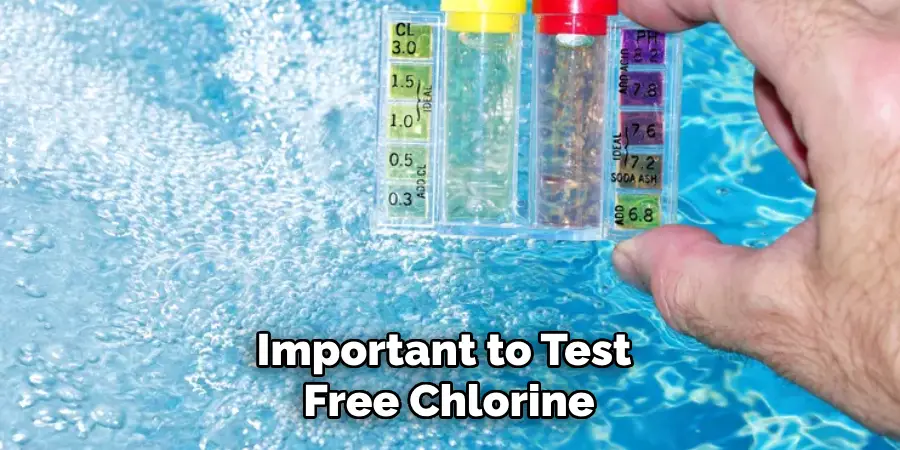
What are Some Alternative Methods for Increasing Free Chlorine Levels?
If you are looking for alternative methods to increase free chlorine levels in your pool, consider using a non-chlorine shock treatment. These treatments use active ingredients other than chlorine, such as potassium monopersulfate, to oxidize and remove contaminants in the pool water. Additionally, using a saltwater chlorinator or UV sanitizer can also help maintain proper free chlorine levels in your pool.
Conclusion
There you have it – now you’re armed with the knowledge on how to get more free chlorine in pool! Whether you use liquid chlorine, a shock treatment, or another process to add more free chlorine, it’s important to keep testing your pool levels to make sure everything stays well balanced.
Setting up a regular maintenance schedule is something that can help keep your pool in great condition for years to come. And if all else fails, contact a local expert who can walk you through the steps of how to adjust your pool chemistry.
Most importantly, don’t forget to enjoy spending time swimming and relaxing around your refreshed pool! Make the most of it by having a summer party or gathering where everyone can benefit from its improved quality. So what are you waiting for? Get out there and enjoy your sparkling clean, beautifully clear pool this season!

